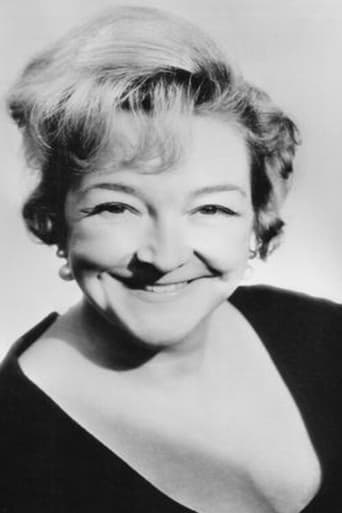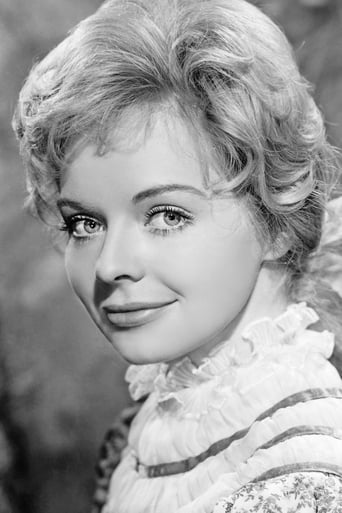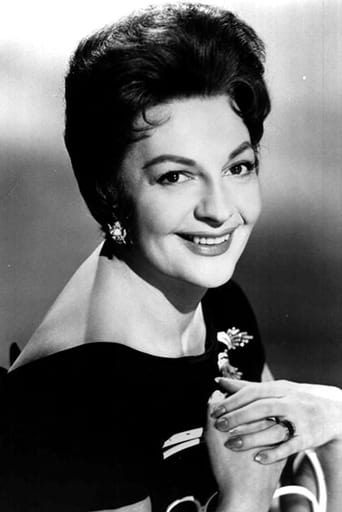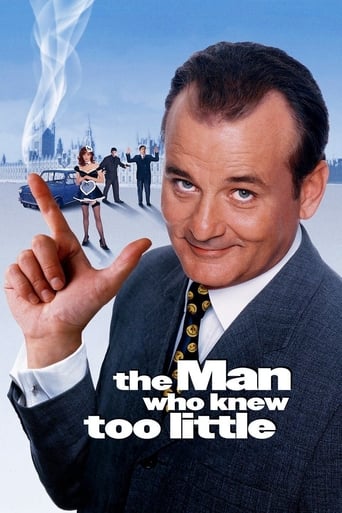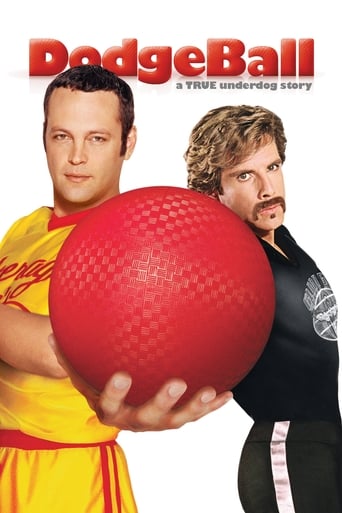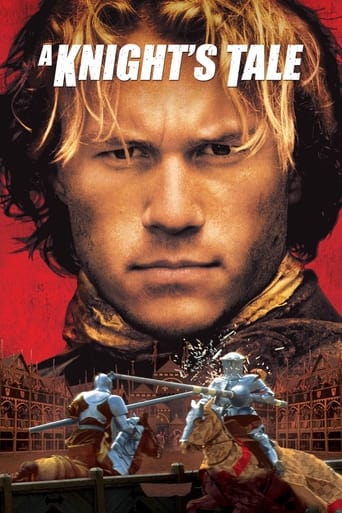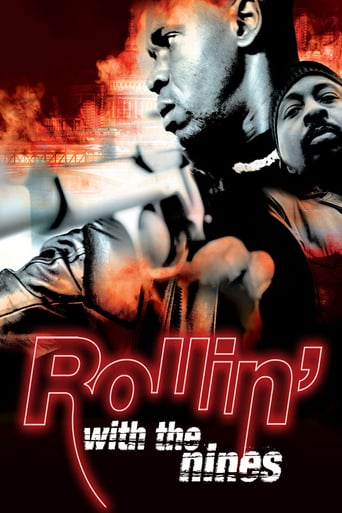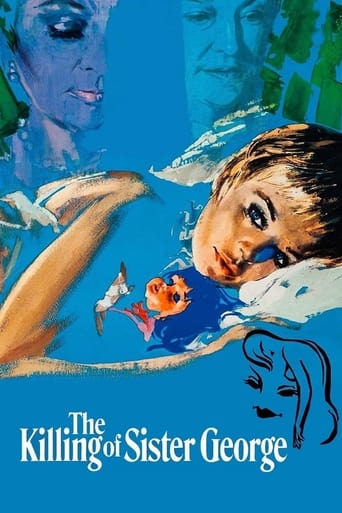
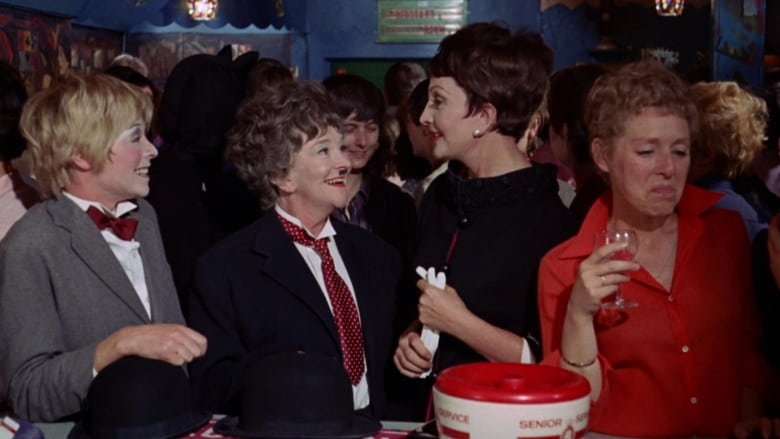
The Killing of Sister George (1968)
When June Buckridge arrives at her London flat and announces 'They are going to murder me', her long-time lover and doll-cuddling flat mate Alice 'Childie' McNaught realizes that things are going to change. For June is referring to her character 'Sister George', a lovable nurse she portrays in a popular daytime serial. To make matters worse, the widowed executive at the BBC responsible for the decision to kill off Sister George - Mercy Croft is also a predatory lesbian who is after Childie and will stop at nothing to get what she wants.
Watch Trailer
Cast
Similar titles
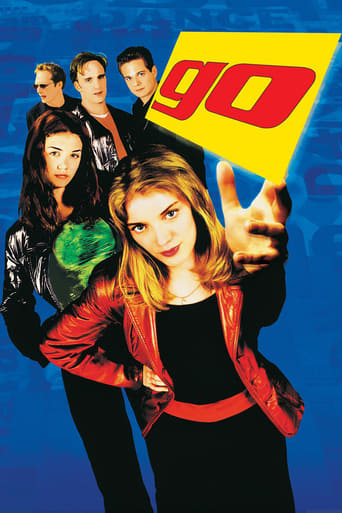
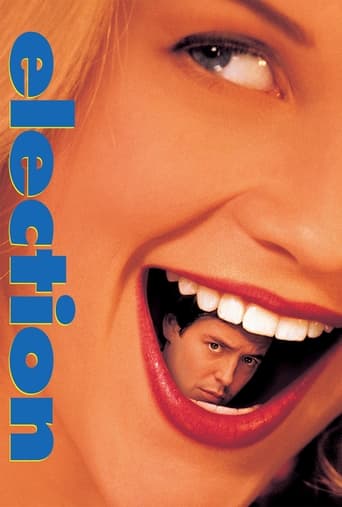

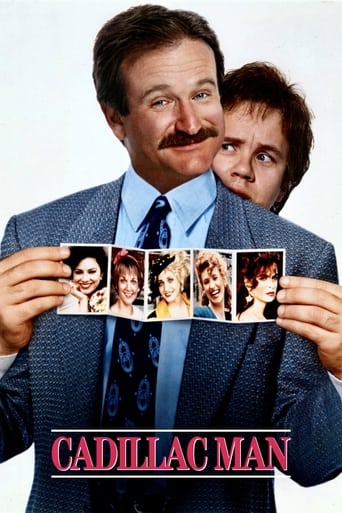
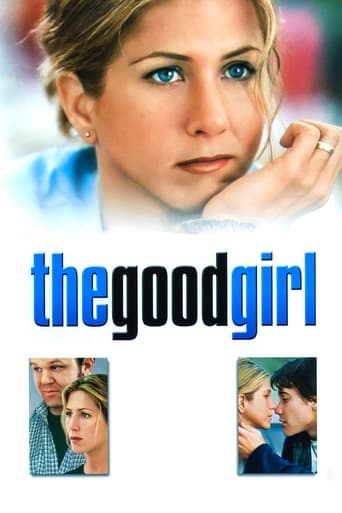
Reviews
Tells a fascinating and unsettling true story, and does so well, without pretending to have all the answers.
This is a coming of age storyline that you've seen in one form or another for decades. It takes a truly unique voice to make yet another one worth watching.
The story, direction, characters, and writing/dialogue is akin to taking a tranquilizer shot to the neck, but everything else was so well done.
The story, direction, characters, and writing/dialogue is akin to taking a tranquilizer shot to the neck, but everything else was so well done.
Beryl Reid plays June 'George' Buckridge, an actress who's appeared for many years on BBC soap Applehurst as the lovable Sister George. In the world of soaps everything changes, fearing she's due to be written out she begins behaving more and more unreasonably, making her partner Childie's life a misery along the way. George becomes horrendously insecure and keeps hitting the bottle, but soon her worst fears are realised.I have to start by saying this film totally defies the period it came from, I had to keep checking it was made in 1968, it feels incredibly modern, and incredibly relevant. Wonderful black humour, some of George's cutting remarks and put downs are so funny. Mrs Croft's arrival at the club is so funny, her facial expressions were priceless.The acting is absolutely phenomenal, I love Beryl Reid, and this has to be the crowning glory of her career, her performance is exquisite, the hold she has of Susannah York's 'Childie' is amazing, and her drunken acting is sensational. York herself got into the role fabulously well, very much up to Reid's charismatic George.I love the scenes of 60's London, it looks amazing, great to see the London buses too. It's a long film, coming in at over two hours, but I promise it's so good it holds your attention.An absolute gem of a film. 10/10
While trying to keep this film's 1969 time-frame firmly in mind - I certainly have to say that I found having actress Beryl Reid in my face for 2 hours & 20 minutes (with her abrasive, scenery-chewing "June Buckridge" character) to be (almost) too unbearable to endure at times.A hateful, nasty, jealous and temperamental boozer - Was June Buckridge really supposed to be looked upon as being a fair representation of an older, butch lesbian (who was having a very stormy affair with a very girlish and feminine woman who was young enough to be her daughter)? If you ask me - This badly-dated, British production (filmed in Metrocolor) was so antagonistic in nature that it only succeeded in reinforcing the most negative lesbian stereotypes imaginable.And, finally - I think that director Robert Aldrich handled this film's subject matter very poorly. As an example of just that - The nightclub scene of same-sex couples slow-dancing together certainly went way beyond the point of being just clumsy and awkward. It sure did. In fact, it was downright atrocious!
Seeing Beryl Reid mouth silently a four-letter swear word when such things didn't happen in films and drunkenly canoodling with two young nuns in the back of a London cab is both quite outstanding and rather lovable.Miss Reid, who I only got to see in my childhood as a twee, granny-like innocent (the sort that she plays for real in a TV serial as Sister George, a homely district nurse), I found The Killing Of... both delicious and ever astounding in its frankness and of her rather warped relationship with the much younger Susannah York.Warped, not because of the age difference, nor of their same-sex partnership, but because June Buckridge (Reid) has a cruel streak that is borne out by her playing sadistic mind games with Alice "Childie" (York).Sister George, in the best tradition of TV soaps, is being killed off, to make way for an Australian replacement. Hence June's venomous outpourings and increasingly erratic behaviour.Equally interesting is the London of the late '60s, both in its landmarks but also its people and fashions, whether that's in how they live and/or how they dress and present themselves.Though real soaps cover such material freely and openly these days, 42 years ago, it must have been a very different kettle of fish. Lesbianism back in those days was not only considered immoral but also a mental aberration and had to be so hidden, in an attempt to prove to those 'righteous' souls that it did not exist. Therefore, it must have been a very brave undertaking as a film, though it originated as a play, written by Frank Marcus.Having now seen it again, I consider Robert Aldrich's ground-breaking film to be a bit of a classic and one, which, no doubt I'll want to see again in a few years time. It really is a piece of British cinematic history.
The same year that Mart Crowley's landmark play about Gay men in New York, THE BOYS IN THE BAND, opened off-Broadway, Robert Aldrich, one of Hollywood's brightest and most versatile voices, gave us the distaff version with his adaptation of Frank Marcus's play THE KILLING OF SISTER GEORGE. Two years later, William Friedkin would bring Crowley's work to the screen, with much better results than Aldrich achieves here, but I think it is only fair to point out that, flaws and all, Marcus and Aldrich got there first.And they brought a cast of heavy-hitters with them: Beryl Reid, a force of nature as June Buckridge ("Sister George," a nurse on a popular soap opera), Susannah York as her somewhat infantile lover "Childie," and the third point in the triangle, a serpentine BBC executive by the name of Mercy Croft, played to a fare-thee-well by Coral Browne, who has a dual agenda: telling June that she's been sacked and stealing Childie from her into the bargain.The acting by all three of these women is, in a word, sensational. Reid in particular dominates the proceedings: June Buckridge is an unpleasant, loud, obnoxious woman who is abusive to her lover. York, however, it must be said, is no slouch in the role of the submissive Childie; in fact, there is one scene with a cigar butt where Childie turns the tables on "George" with devilish glee. And Browne as Mrs Croft is a perfect foil for the both of them: a serpent in a Chanel suit; oozing style from every pore while scheming to get her way.The only problem is that the basic situation really isn't enough to hang a two-hour-and-eighteen-minute movie on. With THE BOYS IN THE BAND, setting the proceedings at a birthday party allowed the drama to unfold almost in real time, with room for a cast of nine actors crammed into a fancy Village apartment; the claustrophobic nature of the set actually works in the film's favor.Unfortunately, GEORGE is a bare-bones story of an aging actress about to lose a job that she has grown to take for granted, much as she takes for granted her lover, a woman who retreats into her dolls when under stress and whom George abuses mercilessly. Childie, as I mentioned, sometimes gets her own back, and once or twice we see some real affection between the two women, but halfway through this thing I found them both quite unbearable and I had a hard time swallowing the notion that either of them would stand for the other's nonsense for so many years. The addition of Mrs Croft to the proceedings does add a little something extra, but though Browne works hard, the part is underwritten and we really don't understand what motivates her. Is she really attracted to Childie, or is she just a bitch out to get George, and taking her lover just an added bit of venom? In the end we are forced to draw our own conclusions. And June, as difficult as she has been, is most certainly the one left with the short end of the stick as the curtain falls.The sex scene, which garnered a lot of press in its day, and which in fact is a pivotal moment, is frankly the movie's low point. Much was made at the time of Susannah York's reluctance to play the scene; I do not know if there was any truth to that, but Browne's icy-cold approach to the "seduction," her fixation on one of York's breasts as if it were a rare specimen of beetle under a microscope, and York's orgasm, which sounds more like a blood-curdling scream of pain than ecstasy, all add up to what must be the most unpleasant seduction scene in film history.At the end of the day, this is a film worth seeing for the performances (Reid's in particular), and for its historical importance, but it's a rather unpleasant business, and goes on way too long; frankly, by the time the thing finally ended, I was ready to take a hatchet to all three of them.
